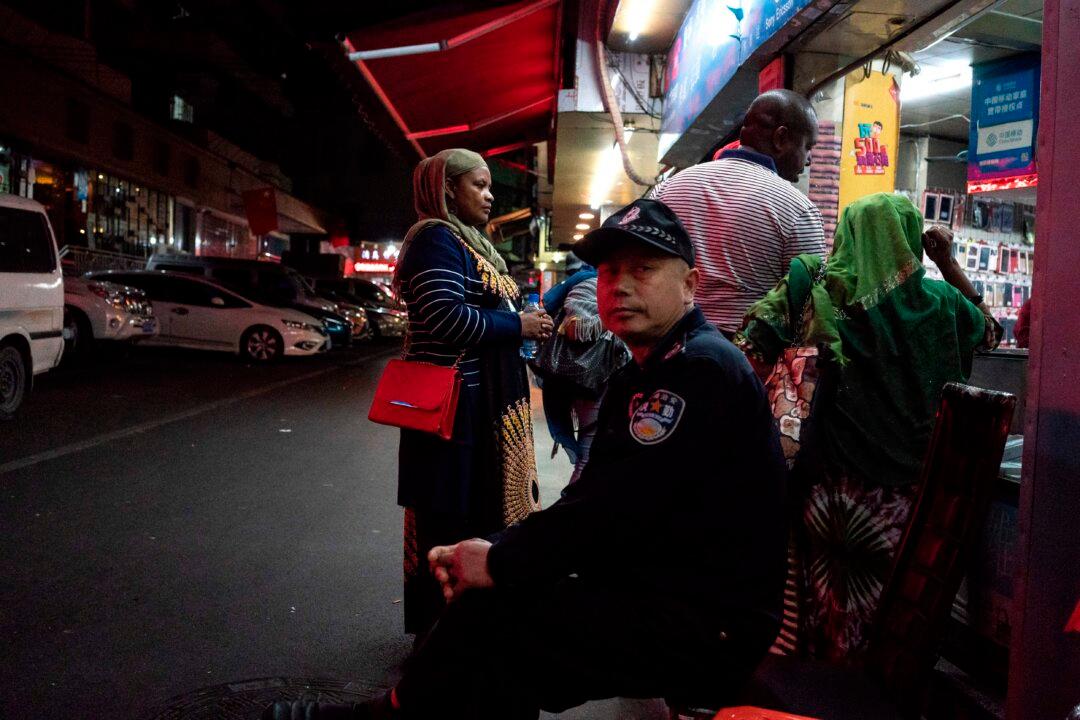JOHANNESBURG—African ambassadors in China have written to the country’s foreign minister over what they call discrimination against Africans as the Chinese regime seeks to prevent a resurgence of the COVID-19 outbreak.

A Chinese security man at the entrance to the "Little Africa" district in Guangzhou, the capital of Guangdong province, China, on March 1, 2018. FRED DUFOUR/AFP via Getty Images
|Updated:




